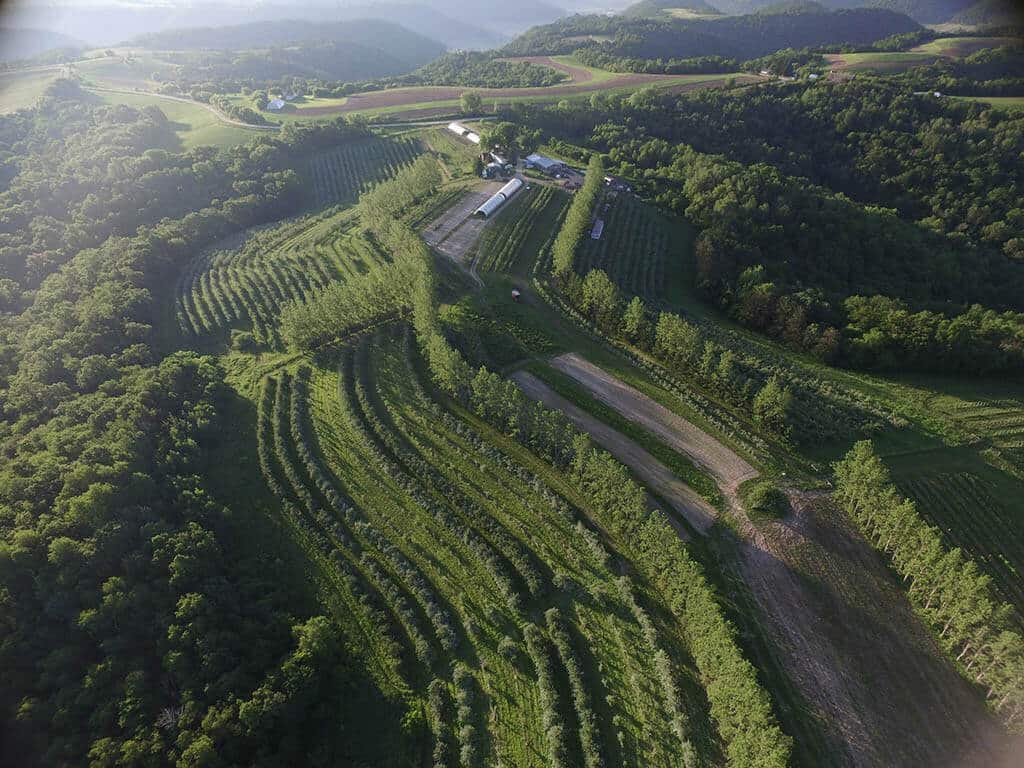The Savanna Institute, in collaboration with the Grantham Environmental Trust and the Matthew Zell Family Foundation, has unveiled its Tree Crop Improvement Program. This initiative aims to develop resilient and productive varietals of nut, fruit, and timber crops to support farmers and their markets. With $12.7 million in grant funding, the program will drive the expansion of agroforestry practices, which integrate trees, crops, and livestock in regenerative systems.
Agroforestry, a sustainable agricultural approach, has gained recognition for its numerous environmental and economic benefits. By integrating trees into farming systems, agroforestry enhances soil health, biodiversity, and climate resilience while providing farmers with additional income streams. The Savanna Institute, a nonprofit organization operating in Wisconsin and Illinois, is dedicated to equipping farmers with the necessary tools and resources to adopt agroforestry practices successfully.
“We’re working to make tree crops more climate resilient and market viable for farmers who want to adopt agroforestry,” stated Keefe Keeley, Executive Director of the Savanna Institute. “Our partnership with these visionary foundations begins to level the playing field for farmers who want to grow tree crops for the betterment of their farms, our communities, and the climate.”
The substantial funding provided will enable the Savanna Institute to establish unique breeding populations for nut, fruit, and timber crops, utilizing cutting-edge plant breeding techniques to develop improved varieties. The selection of seven perennial crops—chestnuts, hazelnuts, elderberry, black currants, black locust, persimmon, and mulberry—was based on criteria such as ecological resilience, economic viability, and scalability for US markets.
Chestnuts and hazelnuts, known as high-value nut crops, have experienced increasing demand that surpasses the current domestic supply. Elderberry and black currants, nutritious small fruits, have relatively short maturity periods compared to other perennial crops, offering faster returns on investment. Black locust, persimmon, and mulberry are all trees that produce calorie-dense fodder for livestock, making them ideal for silvopasture systems—animal pastures that incorporate trees.
Farmers adopt agroforestry practices to diversify their operations in various ways, such as establishing windbreaks along field edges, integrating trees into managed pastures for forage, or planting trees between rows of annual crops. These practices enable farms to benefit from both annual and perennial crop production. The Savanna Institute and its funders anticipate that improved tree crop genetics will increase the adoption of these beneficial agroforestry systems. Scientists consistently rank agroforestry among the most viable and efficient climate solutions in the United States.
Maki Tazawa, Program Officer for the Grantham Foundation, emphasized the untapped potential of agroforestry systems, stating, “Agroforestry systems have major untapped potential to not only sequester significant amounts of carbon but also provide numerous other climate, food security, and conservation benefits to our agricultural systems. We are excited to support Savanna Institute’s leadership in agroforestry as they boost the possibilities for tree crops.”
The Grantham Foundation has previously provided funding to the Savanna Institute to enhance its research capacity while the Matthew Zell Family Foundation has supported efforts to strengthen fruit and nut processing infrastructure. The latest grant funding represents the next phase of the Savanna Institute’s long-term mission to develop improved tree crops for agroforestry systems.
The Grantham Environmental Trust, established by Jeremy and Hannelore Grantham, focuses on combating environmental degradation and preserving and protecting the natural environment. The trust raises awareness of urgent environmental issues and supports organizations working on finding solutions. It has funded a wide range of projects aimed at reducing emissions and removing carbon from the atmosphere. The Matthew Zell Family Foundation, founded in 2018, currently focuses on climate change and supporting local community organizations. The foundation emphasizes historically underfunded sectors like regenerative agriculture and water solutions.
With the launch of the Tree Crop Improvement Program, the Savanna Institute, along with its esteemed partners, takes a significant step toward transforming agriculture through sustainable practices. By developing improved tree crop varieties, this initiative will empower farmers, benefit communities, and contribute to climate mitigation and food security goals.
Image provided by The Savanna Institute


